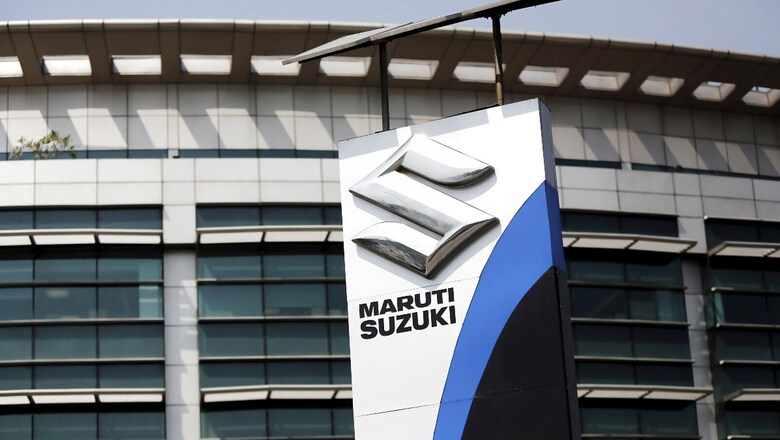
views
Maruti Suzuki, India’s largest car maker, is developing hybrid electric vehicles (HEV) that can be charged on the run, independent of power supply from roadside infrastructure.
The Delhi-based company, which has been slow in adopting EVs compared to peers like Tata Motors, Mahindra and Hyundai, is working on HEVs with another Japanese heavyweight Toyota.
Rahul Bharti, Executive Director, Corporate Planning and Government Affairs, Maruti Suzuki said, “There is a joint testing program of some electric vehicles; these prototypes will be tested starting next month along with Toyota. We are planning to get more consumer feedback on usage patterns, etc. Till the time charging infrastructure grows in India you will need self-charging machines, so towards that, we will be using hybrid electric vehicles."
In self-charging cars, an internal combustion engine (ICE) provides energy to the batteries besides wheel rotation which is an additional power source. Since batteries power the car such a vehicle delivers higher mileage than a pure ICE car.
“It’s a strong technology for the next 10-15 years and it has a lot of merit, it can scale up without the dependence on external charging infrastructure, and offers a good reduction in emissions," Bharti added.
In 2020 in Europe Suzuki had launched the Swace, a hybrid electric vehicle which was developed in partnership with Toyota since it is based on the Toyota Corolla estate. The combination of 3.6 kW battery and a 1.8 litre petrol engine the self-charging Swace delivers a mileage of 27 km per litre.
Car makers say India’s EV charging network is underdeveloped, prompting them to go slow in switching to EV mobility. Along with Maruti Suzuki, companies like Volkswagen, Renault, Nissan, Honda and Kia do not have any immediate plans of getting into EVs primarily due to the high acquisition cost and lack of adequate charging infrastructure.
Maruti Suzuki started testing 50 modified battery-powered Wagon R cars across the country in late 2018. This was also when Maruti committed to commercially launch its first fully electric vehicle in India in 2020. The maker of popular cars such as the Baleno and Swift, commanding nearly 50 percent market share in the passenger vehicle segment in India, is depending on parent Suzuki Motor Corporation (SMC) for EV solutions.
Reports from SMC’s Japan headquarters indicate that Maruti Suzuki will enter the pure EV space in FY25 and its first car is expected to be priced below Rs 10 lakh. Maruti Suzuki has divulged its EV plans yet.
Also Watch:
Currently there are no electric cars which are priced below Rs 10 lakh. Mahindra & Mahindra (M&M) had announced the launch of the eKUV100, which was to become the cheapest electric car in India, but due to change in product strategies and the shortage of availability of semiconductors, M&M has significantly delayed its launch.
India’s top-selling electric car is the Tata Nexon which has a market share of 70 percent and a waiting of 14-16 weeks. The electric Nexon is priced at Rs 14 lakh (excluding State subsidies).
Read all the Latest News, Breaking News and Assembly Elections Live Updates here.

















Comments
0 comment